Books I Have Read in 2009 So Far
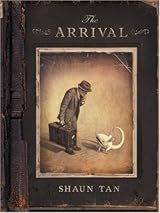
The Arrival by Shaun Tan. If Jim Woodring and Mark Tansey collaborated on a children's book about immigration, it might look something like this.
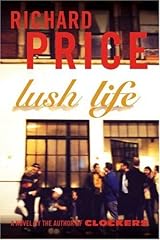
Lush Life by Richard Price. Price does a lot of reporting to get the details right. In this book, you really see how hard it is for the police to get it right--or perhaps how easy it is to get it wrong. The police investigating a murder develop a theory that is completely wrong (but that fits the flimsy evidence they have to begin with) which, once it it contradicted, makes following the right path all the harder. This sounds extremely similar to the exonerations one reads about with the Innocence Project, except in those cases, the cops never relinquish the wrong theory even after excuplatory evidence is found. The fuzzy, bureaucratic world of cop-logic is laid pretty bare in this book, and it is very unlike TV cop shows. Great dialogue, too.
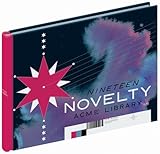
Acme Novelty Library vol. 19 by Chris Ware. A different kind of Rusty Brown story, where his sexual initiation is inextricably tied to his love of science fiction. Ware's conception of science fiction is simultaneously learned and dyspeptic. Ware seems to both love and hate the old 30s, 40s, and 50s science fiction short stories. And he weaves it into this Rusty Brown's unhappy life. (This Brown seems superficially far better adjusted than the other Rusty Brown, seen in earlier volumes.)
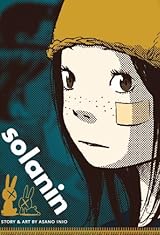
Solanin by Inio Asano. Nice art and an easy-going story (with one kind of shocking incident in the middle). Post-collegiate types in Tokyo whose only ambition is not to become office automatons. But they aren't sure what else to do. The main character, Meiko, expresses this attitude by referring to people who work in her office as "grown-ups". The book is about finding something to drive you and inspire you. It's not a deep work of fiction, but not bad.

Forever Peace by Joe Haldeman. After an excruciating first half (high-tech American war atrocities in a future asymmetric war), it kind of wraps up too quickly and easily in the second half, where the life and death instincts of humanity essentially battle it out. Haldeman is, of course, critical of the American military-industrial complex (it's a recurring theme for him) and as he did in The Forever War, suggests that our warlike nature may only be avoided by somehow artificially evolving ourselves beyond it.
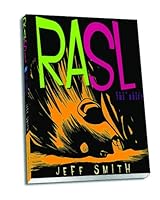
RASL vol. 1: The Drift by Jeff Smith. I had been reading this in the comics, but this large-format book is a much better way to get the story. My one regret is that too little of the story has been told in this volume. What we know--Rob has the ability to jump to alternate Earths by using a bizarre, Kirby-esque machine. He uses this ability to steal art masterpieces in one universe to sell in another. He is an unpleasant protagonist, and indeed, RASL seems to be the "anti-Bone" in some ways. It features somewhat shocking level of sex and violence. His story-telling is different, too. Smith is keeping a lot from the reader. We know Rob is a former scientist who had an affair with his colleague. He is afraid of assassins, and the one assassin he meets has a strange, almost reptilian face. Enough has been hinted at to keep me interested. I look forward to future volumes.
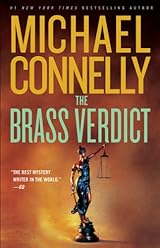
The Brass Verdict by Michael Connelly. A typical Michael Connelly book--gripping and well-written, like all his mysteries. But there is a kind of sameness that his books have acquired over time. He attempts to shake things up by writing about Mickey Haller, a defense attorney. This is the second Mickey Haller book, and it really comes through that Connelly just doesn't like defense attorneys and what they do. He seems, if anything, trying to convince himself that defense lawyers are not just cynical defenders of evil scumbags. It makes the book feel a little schizophrenic. He does make a point of how police (and prosecutors) will attach themselves to one theory of a crime and have tunnel vision about any other possibility.

Terry and the Pirates vol. 5 by Milton Caniff. The second to last volume. Terry is now a pilot, first training as a cadet with Chinese pilots, then fighting with other American fighter pilots. He has some adventures in China, but to shake things up, Caniff takes him to India and then Burma. In the meantime, we see Pat Ryan working in naval intelligence on a Pacific island. Connie and Big Stoop are somehow part of Pat's crew, and Burma (the character, not the colony) shows up again, but these characters from the past are a bit awkward. They don't exactly fit into Caniff's new, accurate, patriotic militarism. Caniff really took it on himself to be a propagandist for the war effort.
As usual, the production values are supurb. The introductions are appropriate and feature excellent photographs.

2 Comments:
In 10 days? That's exceptionally prolific!
Well, most of them are graphic novels. Also, I had some days off in there, as well as a few sick days (came down with the flu) and two weekends. And finally, I didn't read any particularly challenging or even lengthy books in these past 10 days. So it seems like a lot in raw numbers, but not really.
Post a Comment
Subscribe to Post Comments [Atom]
<< Home